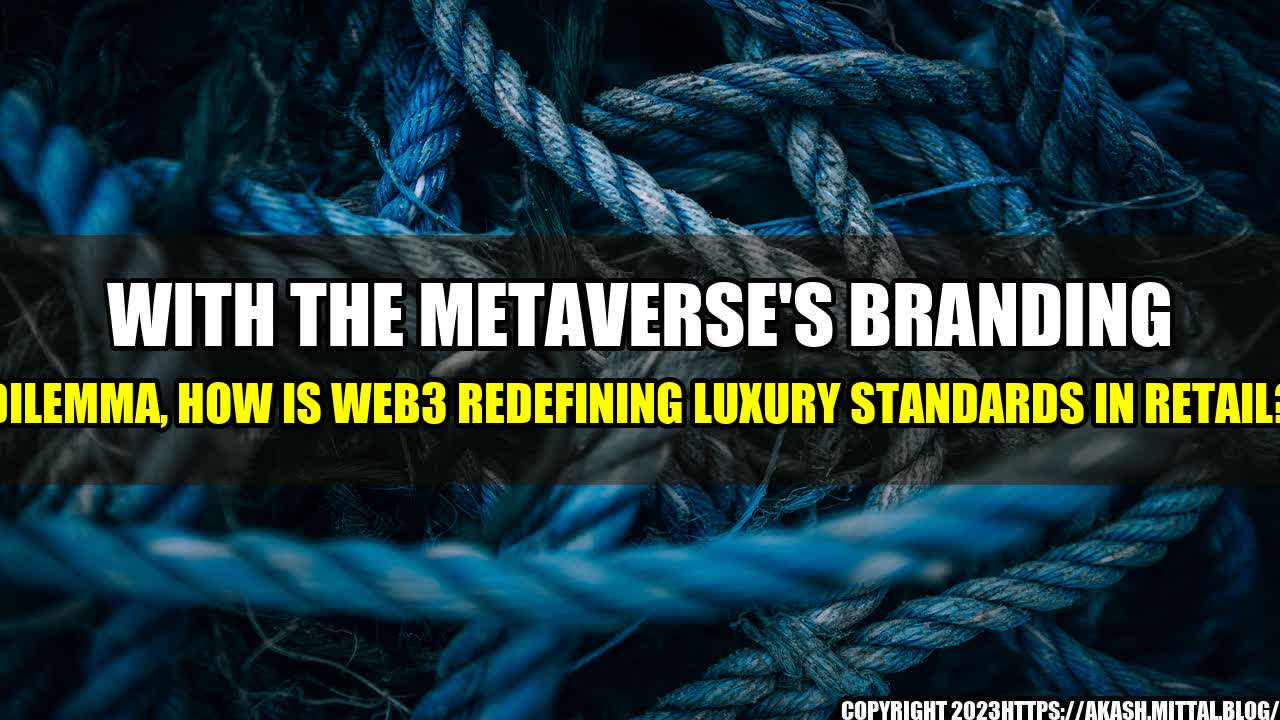
The world of retail is rapidly changing, and a significant factor contributing to this change is Web3. As the technology that powers the metaverse, Web3 has the potential to redefine the standards of luxury retail. In this article, we explore the branding dilemma faced by the metaverse and how Web3 is disrupting the retail landscape.
In early 2021, Gucci partnered with Roblox to create a virtual world where users could buy digital items with real money. This partnership was hailed as groundbreaking, but it also raised questions about the branding dilemma faced by the metaverse. How do luxury brands maintain exclusivity in a world that is accessible to everyone?
One of the ways Web3 is redefining luxury standards in retail is by introducing non-fungible tokens (NFTs). NFTs are unique digital assets that cannot be replicated, and they are becoming increasingly popular in the art world. In March 2021, an NFT artwork by Beeple sold for $69 million at Christie's auction house.
Another example of Web3's impact on retail is the rise of decentralized marketplaces. These platforms allow creators to sell their digital products directly to consumers, cutting out intermediaries like Amazon or Etsy. One such marketplace is OpenSea, which has seen explosive growth in recent months. In August 2021, OpenSea's trading volume was over $3 billion, up from just $8 million in January of the same year.
With The Metaverse's Branding Dilemma, How Is Web3 Redefining Luxury Standards In Retail?
One of the challenges for luxury brands in the metaverse is creating a sense of exclusivity. In a world where everything is digital and accessible, how do you create a feeling of scarcity and prestige? One way is through scarcity itself. Brands like Louis Vuitton have started creating limited edition NFTs that are only available to a select few, creating a sense of exclusivity that mimics the real world.
On the other end of the spectrum, independent creators are also thriving in the metaverse. For example, musician 3LAU sold $11.6 million worth of NFTs in a single day, proving that the metaverse is not just for big brands.
References:
Hashtags: #Web3 #metaverse #NFTs #luxuryretail #decentralizedmarketplaces
Technology / Retail
Curated by Team Akash.Mittal.Blog
Share on Twitter Share on LinkedIn